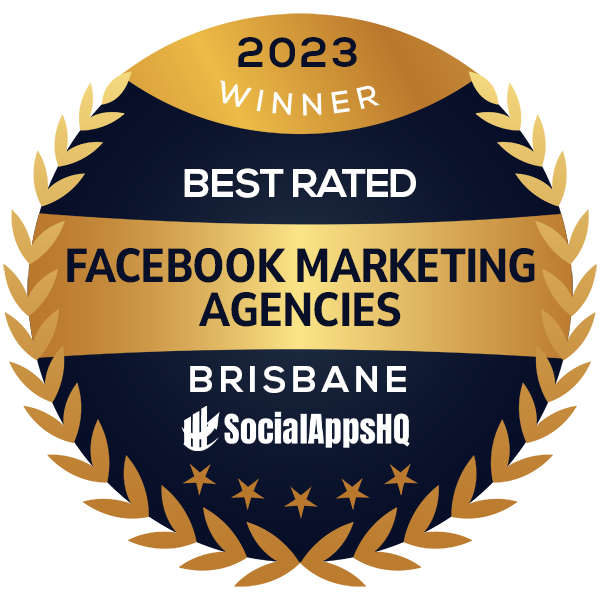Small businesses often face unique challenges when it comes to marketing. With limited budgets and resources, it’s essential to find the most effective marketing strategies that deliver results. This article will highlight the top marketing strategies that small businesses can use to attract customers, build brand awareness, and drive growth.
Creating a Website That Drives Results
In today’s digital age, having a strong online presence is crucial for small businesses. Start by creating a user-friendly, visually appealing website that showcases your products or services. To improve your website, consider the following tips:
- Implement responsive design to ensure your website looks great on various devices, including desktops, tablets, and smartphones.
- Improve page load speeds by optimising images, using browser caching, and minimising the use of plugins.
- Include clear calls-to-action (CTAs) that guide visitors towards desired actions, such as signing up for a newsletter, making a purchase, or contacting you for more information.
- Offer easy-to-find contact information, such as phone numbers, email addresses, and physical locations, to facilitate communication with potential customers.
- Regularly update your website with fresh, high-quality content to keep visitors engaged and encourage search engines to crawl your site more frequently.
Ensure your website is optimised for search engines, as this will improve your online visibility and help attract potential customers. Research relevant keywords for your industry and incorporate them into your website’s content, meta tags, and URLs to improve search engine rankings.
Having a great website is one of the most effective marketing strategies small businesses can focus on to attract more customers and increase sales.
Building a Strong Online Presence on Social Media
Additionally, maintain active social media profiles on platforms relevant to your target audience. Each social media platform has unique features and user demographics, so tailor your content and approach accordingly:
- Facebook: Share a mix of promotional and informational content, including blog posts, photos, videos, and events. Use Facebook Groups to connect with like-minded individuals and participate in community discussions.
- Instagram: Focus on visually appealing images and short videos to showcase your products, services, or behind-the-scenes glimpses of your business. Utilise hashtags and Stories to increase your reach.
- Twitter: Share timely updates, engage in industry conversations, and provide customer support. Use Twitter to establish your brand’s voice and participate in trending topics or hashtag campaigns.
- LinkedIn: Share professional content, such as industry news, thought leadership articles, and company updates. Connect with other professionals and participate in relevant LinkedIn Groups to build your network.
- Pinterest: If your business is visually oriented or targets a predominantly female audience, use Pinterest to share inspiring images, infographics, and product photos that link back to your website.
Engage with your followers by sharing valuable content, responding to comments, and building an online community. Regularly monitor and analyse your social media performance to identify what content resonates best with your audience and adjust your strategy accordingly.
Content Marketing: A Key to Success
Content marketing involves creating and sharing valuable, relevant content that resonates with your target audience. This can help establish your business as an industry authority, drive traffic to your website, and encourage customer engagement. Create various types of content, such as blog posts, videos, infographics, and podcasts, to cater to different preferences. Promote your content through social media, email marketing, and other channels to reach a wider audience.
Tip: Make your content ‘evergreen‘, meaning it won’t go out of date. That way, you can repurpose it and safe yourself lots of time!
Done Digital understands that managing a successful content marketing strategy can be overwhelming for small business owners. That’s why we’re here to help you every step of the way. Our team of experts can assist with content creation, strategy development, and promotion across various channels, ensuring your marketing efforts are effective and well-coordinated. By partnering with Done Digital, you can focus on running your business while we take care of implementing the most effective marketing strategies to drive growth and engagement for your brand.

Content Marketing is a key to success when growing your small business
Leveraging Local Marketing Techniques
As a small business, targeting your local community can be a powerful marketing strategy. Focus on local SEO by optimising your website and online profiles for location-specific keywords, ensuring your business appears in local search results. Additionally, engage with your community by participating in local events, sponsoring activities, and collaborating with other local businesses. This can help increase your visibility, build trust, and attract more customers.
Email Marketing: A Cost-Effective Strategy
Despite the rise of social media, email marketing remains an effective and cost-efficient way for small businesses to communicate with customers. Start by building and maintaining an email list of current and potential customers. You can grow your email list by offering incentives, such as free resources, discounts, or exclusive content, in exchange for a subscription. Also, add opt-in forms to your website, blog, and social media profiles to make it easy for visitors to sign up.
Craft compelling email campaigns that include personalised content, exclusive promotions, and valuable information. To create engaging emails, consider the following tips:
- Write attention-grabbing subject lines to encourage recipients to open your emails.
- Use a conversational tone and address recipients by their first name to create a more personal connection.
- Include visually appealing images, but don’t forget to add descriptive alt-text for those using screen readers or with slow internet connections.
- Add clear calls-to-action (CTAs) to guide subscribers towards a specific action, such as making a purchase, reading a blog post, or signing up for an event.
- Test different email formats, designs, and content types to identify what resonates best with your audience.
Remember to segment your email list based on customer preferences, demographics, or past interactions with your business, ensuring you deliver relevant content to each subscriber. This can lead to higher open and click-through rates, ultimately resulting in increased engagement and conversions.
Use automation tools to set up targeted email campaigns based on specific triggers, such as abandoned carts, website activity, or recent purchases. By employing these actionable tips, you can make the most of your email marketing efforts and effectively communicate with your customers.
Unlock Growth Opportunities Using The Power of Networking and Strategic Partnerships
Building professional relationships within your industry can be instrumental in growing your small business. Attend networking events, conferences, and trade shows to connect with like-minded professionals, potential customers, and industry influencers. Foster strategic partnerships with complementary businesses to cross-promote your products or services, share resources, and expand your reach.
Now it’s time to embark on a thrilling adventure to grow your business!
By identifying the most effective marketing strategies for your business, you can unlock the growth and success you’ve always dreamed of. Focus on building a rock-solid online presence, captivating your audience with content marketing, charming your local community, mastering the art of email marketing, and forging powerful networking and partnerships.
Small businesses that effectively attract customers and drive growth know that adaptability is key, so remember to regularly analyse your marketing efforts and fine-tune your strategies to keep the momentum going.
Ready for a game-changing move? Book a free strategy call with the superstar team at Done Digital!
We’re here to help you navigate the marketing landscape and create a winning plan tailored to your business. Let’s join forces and conquer the world of small business marketing together. Claim your free strategy call now!

 Done Digital
Done Digital Done Digital
Done Digital Done Digital
Done Digital

